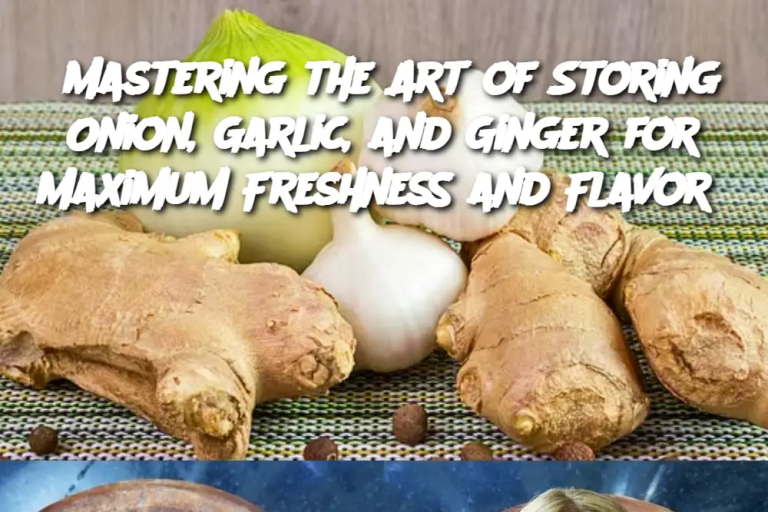ADVERTISEMENT
Yellow onions, red onions, and white onions all have slightly different flavors, with red onions being milder and sweeter, while yellow onions provide a more robust flavor. Store them the same way, but be aware that the flavors may vary.
Garlic Variations:
Garlic comes in multiple varieties, such as soft-neck and hard-neck types, each with subtle differences in flavor. Store them in the same manner, but note that hard-neck garlic may have a stronger, more pungent flavor.
Ginger Variations:
You may encounter young ginger, which has a thinner skin and is more tender. Store it similarly to regular ginger, but it may have a milder flavor and can be used raw in some dishes.
FAQ:
Q: Can I freeze garlic? A: Yes, garlic can be frozen. You can freeze whole bulbs, individual cloves, or chopped garlic. Freezing will change the texture slightly but will retain the flavor, making it a great option for long-term storage.
Q: How long can I store ginger in the refrigerator? A: Fresh ginger can last in the refrigerator for about 3-4 weeks if stored properly in an airtight container or plastic bag. If it starts to shrivel or develop soft spots, it’s time to discard it.
Q: Can onions and garlic be stored together? A: It's best not to store onions and garlic together, as they each emit gases that can cause the other to spoil more quickly. Store them separately to maximize their shelf life.
Q: Can I store cut ginger in the fridge? A: Yes, cut ginger can be stored in the fridge, but it should be kept in an airtight container or plastic bag to prevent it from drying out.
With these tips and guidelines, you’ll be able to keep your onions, garlic, and ginger fresh and flavorful for longer, helping you make the most of these kitchen essentials!
ADVERTISEMENT
